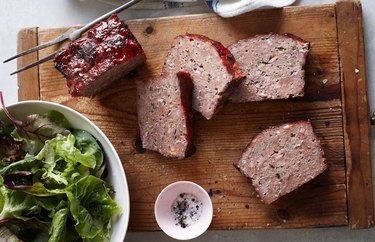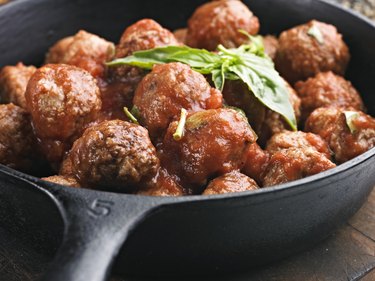
Winter is the season for sweaters, snowflakes and, yup, the sniffles. It's no secret that cold weather brings sneezes and sickness galore, but there are some little-known nutrition powerhouses that may help you get through the season free from a cold or flu.
I know what you're thinking: You already know all about the wonders of getting more vitamin C in your diet! And that good sources include sweet red bell peppers, oranges, kiwi, broccoli and most other fruits and veggies.
Video of the Day
Video of the Day
But did you know this mighty nutrient doesn't actually prevent illness? Vitamin C has been shown to reduce the duration and severity of the common cold, but not prevent you from getting sick in the first place, according to a January 2013 review in the Cochrane Database of Systematic Reviews.
Immune-Boosting Nutrients Beyond Vitamin C
If your immune system is looking for extra support this season, you need a full spectrum of nutrients in your diet. In fact, a deficiency in one of the following may negatively affect your body's ability to fight off infection, according to a May 2013 paper in Proceedings of the Nutrition Society.
- Vitamin A helps our immune cells mature so they can better ingest and kill bacteria. In fact, vitamin A deficiency may also make our bodies less able to respond to vaccines.
- Vitamin D receptors are found on many of our immune system cells and helps our bodies produce anti-microbial proteins that enhance our innate defense mechanisms.
- Vitamin E protects our cells from damage and helps boost our immune response to infections.
- Zinc helps our bodies produce immune cells. Even a mild zinc deficiency may inhibit your body's ability to fight against organisms that cause diarrhea, respiratory tract infections and skin infections.
Besides minerals and vitamins, a diet rich in probiotics, or beneficial bacteria, also helps to improve your body's innate immunity by building a diverse microbiome in your gut.
These good bacteria actually play a role in protecting us from infection. A November 2019 paper in BioMed Research International lays out the benefits of healthy probiotics such as lactobacillus and bifidobacteria for reducing inflammation, improving immune response and eliminating potential pathogens.
So where can you find these champions in your diet? Here are five prime sources, along with a few alternatives for people with different dietary restrictions. Note that we'll talk about the nutrients in these foods in terms of percent daily value (DV), which is based on a 2,000-calorie diet for healthy adults.
1. Beef
A serving of beef provides over 100 percent of your estimated daily amount of zinc. If you're not a meat-eater, though, some good vegan and vegetarian sources of the nutrient include lentils (23% DV), oysters (76% DV) and tofu (36% DV). Zinc acts as a co-factor, or an assistant, for many chemical reactions that strengthen our immune system.
2. Tuna
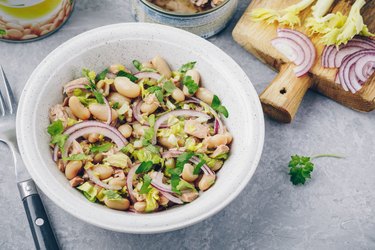
Those inexpensive cans of tuna you have stocked in your cupboard are actually pretty good sources of vitamin D (10% DV) with a little bit of zinc (4% DV). In fact, tuna is a great way to get an array of powerhouse nutrients to boost immune function.
3. Sunflower Seeds
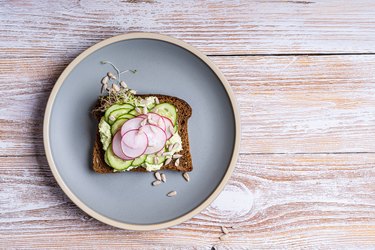
Sunflower seeds are a good source of zinc (13% DV) and vitamin E (66% DV) and can easily be added to oats, yogurt parfaits or salads for an extra dose of immune support.
4. Milk
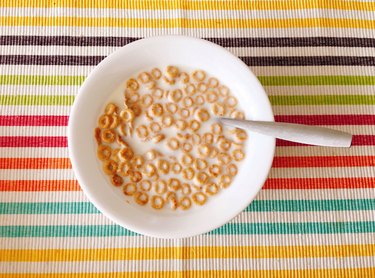
A good old-fashioned glass of cow's milk actually packs a lot of immune-supporting ingredients. Rich in vitamin D (32% DV), it also boasts 25 percent of your daily value of vitamin A and 16 percent of your DV of zinc, meaning milk is good for more than just bone health.
Milk alternatives, like almond or oat milk, can also be fortified with these vitamins, but check the label to be sure.
5. Yogurt
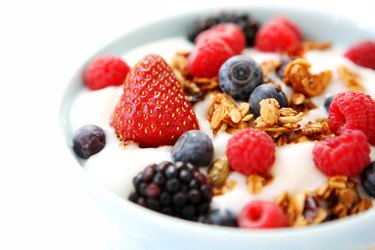
- My Food Data: "Sweet Red Bell Peppers"
- My Food Data: "Oranges"
- My Food Data: "Kiwifruit"
- My Food Data: "Broccoli"
- The Cochrane Database of Systematic Reviews: "Vitamin C for preventing and treating the common cold"
- Proceedings of the Nutrition Society: "Feeding the immune system"
- My Food Data: "Lentils (Cooked)"
- My Food Data: "Raw Pacific Oysters"
- My Food Data: "Firm Tofu"
- My Food Data: "Canned White Tuna (Water Packed)"
- My Food Data: "Organic White Beans"
- My Food Data: "Dried Sunflower Seeds"
- My Food Data: "Whole Milk"
- My Food Data: "Plain Yogurt"
- My Food Data: "Dry roasted cashews"
